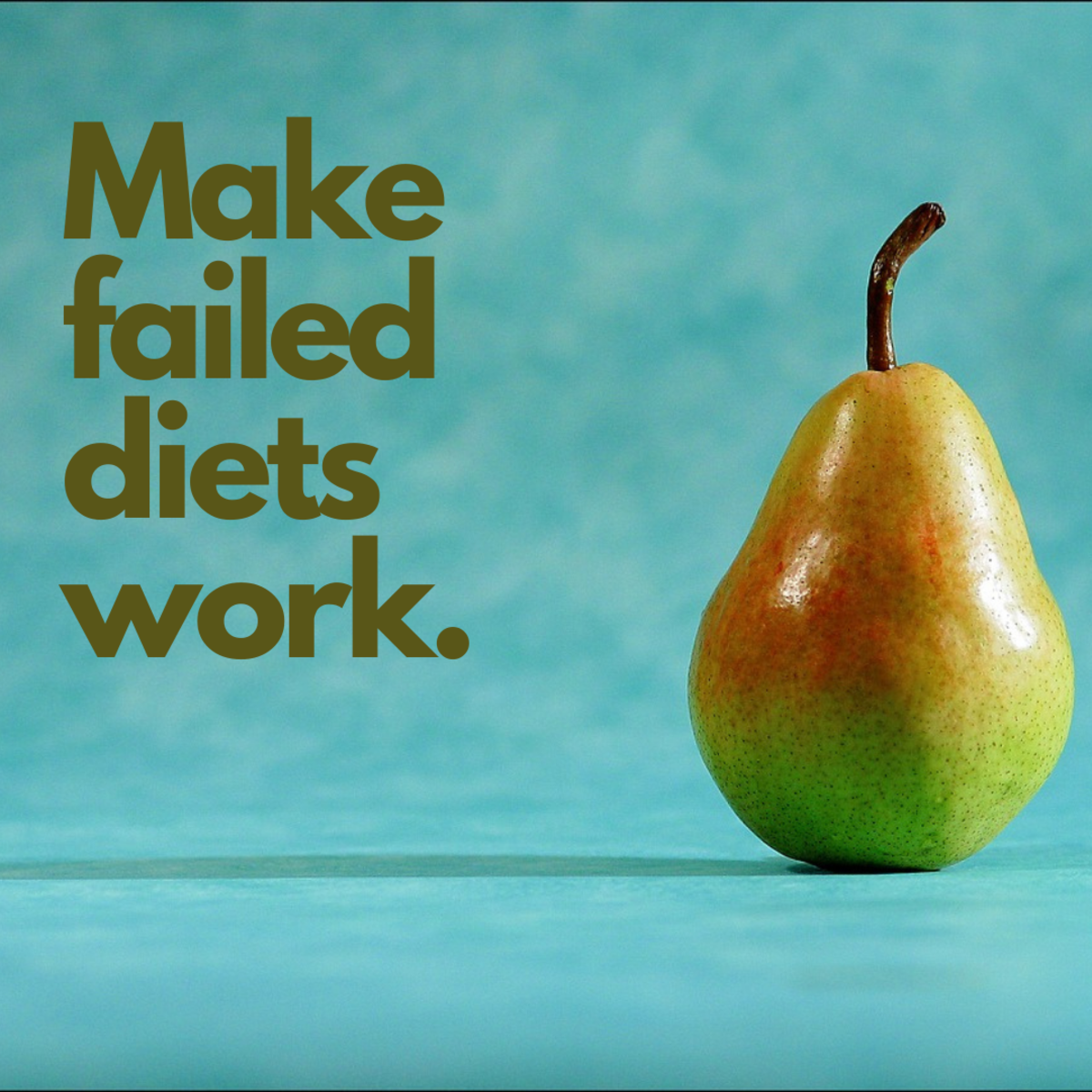Healthy Living- Why Diets Don't Work
Food is fuel, and if you treat as such, you will feel healthier and happier

Do you consider yourself a chronic dieter?
Thin is In - A Cultural Obsession of Weight Loss
Thin is in. Americans are dieting at the highest rate in history. Culturally, many people believe that a person can weigh whatever weight he or she desires, as long as enough effort is put into dieting and exercising. It is believed that our weight is in our control, regardless of our expectations.
These beliefs have resulted in a surge of fad diets, dieting products, and diet or fitness related programs. A survey conducted by the National Institute of Health revealed that between 20% and 24% of men were actively dieting to lower their weight. The study found that between 33% an 40% of women were dieting to lower their weight. Another 28% of those surveyed were using some sort of diet to maintain their current weight.
The study done by the NIH showed that a large portion of adults in America are dieting or restricting their food intake in some way, shape or form. And those numbers are only rising. People are flocking to buy the latest fat free food, miracle weight loss cure, or new exercise machine, leading to a multi-million dollar weight loss industry.
The sad truth, diets DON'T work!
This exercise tracker is a great way to hold yourself accountable and stick to your exercise plans.
Why Dieting Doesn't Work
Extensive scientific research indicates that 90% to 95% of people who diet to lose weight end up regaining the weight they lost within fifteen years. A majority of those people will end up will end weighing more then when they started to diet in the first place.
If you ask most dieters if they were successful in maintaining weight lost through dieting, they will tell you that they were not successful in keeping the weight off long term. Many healthcare professionals have even stated that dieting can be a cause of obesity in many cases; partly due to the effect dieting has on your metabolism, and partly due to the fact that dieting does not deal with the root issue of a weight problem.
Obesity rates are at a historical high, with one out of every four adults presently being considered obese. Those who are obese and have been dieting for a long time have a harder time reaching a normal weight when compared to those who are obese and haven't dieted excessively.
Sandra Aamodt's Fantastic TED talk on the Science Behind Why Diets Fail
Dieting and Eating Disorders
Dieting behavior is not only linked with cases of obesity, but it is also a contributing factor in the development of eating disorders, like anorexia and bulimia. A survey of individuals entering treatment for anorexia and/or bulimia revealed that 59% of patients listed dieting as one of the precipitating events leading to the development of their condition. Chronic dieting, chronic restricting of calories, and obsessively working out can all cause psychological changes in the brain that lead to a serious eating disorder.
Simply put, dieting is not without risk.
Intuitive eating is all about tuning into your body's true hunger and fullness cues. Studies have shown that by adopting intuitive eating into your life, you wi
The Physical Effects of Dieting
After examining the ways in which the body responds to a change in weight scientists saw effects that were both physical and psycholgical.
When someone diets, their body quickly responds to the decrease in food consumption. Within 24 hours of starting a diet that restricts calorie intake drastically, or a diet that eliminates an entire food group, the brain begins to slow down due to the body's need to provide the person with energy to function; this leads to slowed down thought processes, weakness, fatigue and more.
Calories are converted into energy when you eat food. The goal of the the dieting body is to turn fat into needed energy lacking from the diet. If calories are reduced by too much, too quickly, the body relies on the muscle tissue to keep the organs functioning properly. This can lead to organ problems, and even organ failure. Even the heart becomes overstressed, which is why many people who are underweight will experience fainting spells or heart arythmias.
Dieiting also slows down the body's basal metabolic rate. This value is a number that represents how many calories it takes a specific person just for their organs to function. It is also a majority of the number of total calories a person needs when taking into account their lifestyle.
When a person stops dieting, they are unable to get their basal metabolic rate to return to what it was before dieting. Even as weight is put on, they will experience a slower metabolism, leading to faster weight gain and more difficulty when trying to maintain a healthy weight.
Dieting Has a Strong Link to Eating Disordered Behavior

The Psychological Effects of Dieting
Psychologically, dieting alters the way the brain works. When you restrict calories, the brain becomes pre-occupied with food and weight related subjects. Your body goes into starvation mode and you begin to think about food, talk about food, even dream about food.
Emotions become more erratic as the body becomes more and more malnourished. You may find yourself alone more often due to these changes.
Research shows that in many cases, when someone loses weight and then puts it back on, that weight is in the form of fat, not muscle. Muscle tissue in a chronic diet is almost always lower than a non-dieter, regardless of weight. This is why diets are so ineffective.
The body's tendency to conserve energy when deprived of food, coupled with psychological trouble when dieting that complicates the way the body regulates the balance of energy and food is a leading contributor to issues with weight management. It is also a contributing factor in obesity.
To maintain a healthy weight, DON'T diet. Instead, adopt a lifestyle that incorporates moderate amounts of exercise and balanced eating.
© 2015 Kathleen Odenthal










